
All categories
Featured selections
Trade Assurance
Buyer Central
Help Center
Get the app
Become a supplier

(17556 products available)


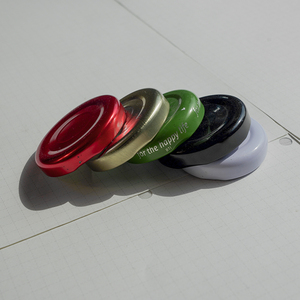


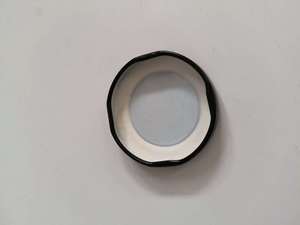

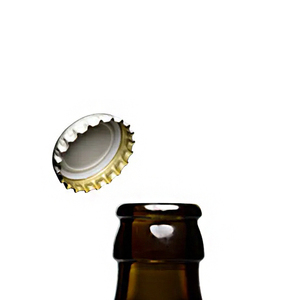
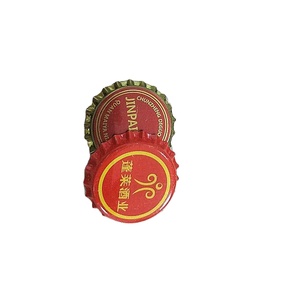


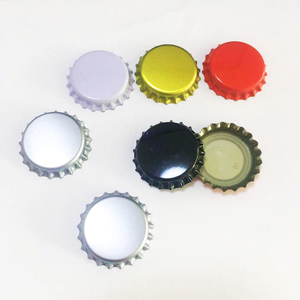
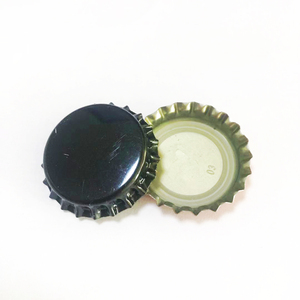

The bottle cap-making machine creates bottle caps, which are essential components for beverages and other bottled products. These machines can be classified based on the materials they work with and their mechanisms of operation.
Based on material
The bottle cap-making machine can be classified based on the material it works with. Some machines work with plastic exclusively, while others work with metal. Others can work with both, depending on the model and specifications.
The bottle cap-making machine for plastic caps works with materials like polypropylene (PP), polyethylene terephthalate (PET), and polyethylene (PE) the machines might have been through various quality tests and thus can ensure that the caps produced will have similar qualities as those made with other materials. Plastic has the added advantage of being less costly and lighter, so the end products will be just that.
Metal cap-making machines, on the other hand, work with stainless steel, aluminum, or tinplate, and these materials are chosen for their strength and durability. They can withstand the rigors of transportation and handling, and the seals they provide are reliable and robust. Metal caps are preferred for products that require a high level of protection against contamination and leakage.
Based on Operation Mechanism
Bottle cap-making machines can also be classified based on their operation. Some are semi-automated; operators have to put in effort before the machines work their magic. Automated machines are more efficient and can produce thousands of caps per hour, depending on the specifications.
Manual bottle cap-making machines require manual input during the process, which can be time-consuming and labor-intensive. On the flip side, automated cap-making machines have streamline production processes. They incorporate advanced technologies such as PLC control, servo motor systems, and automatic feeding and sorting systems. These at times smart machines can produce large quantities of caps in a continuous process with sought efficiency, consistency, and precision. They also feature safety mechanisms that protect the machine and the operators.
The following specifications of a bottle cap manufacturing machine can influence its production capacity.
Cap Size
The machine must be able to produce bottle caps in different sizes, such as standard bottle caps and large sport bottle caps. Custom bottle cap molds might be necessary to produce non-standard sizes.
Production Speed
This includes the number of bottle caps the machine can produce per hour. Factors like the automation level of the machine and its operational efficiency can impact this.
Compatible Materials
A machine's compatible materials determine the types of bottle caps it can produce. Examples include polypropylene, polyethylene terephthalate (PET), and polystyrene.
Operating Environment
This includes the temperature, humidity, and cleanliness levels of the environment where the machine will be used. Those factors can affect its performance and product quality.
Power Requirements
The machine's voltage, frequency, and current requirements will influence the power needed to operate it.
Cap Types
Machines available for sale on e-commerce sites like Alibaba.com can produce different types of bottle caps. They include metal bottle caps for soft drinks and beverages, and snap-on plastic bottle caps for water and juice.
A bottle capper needs regular maintenance to operate efficiently. Here are some maintenance tips for keeping the machine in good shape:
Daily Cleaning
Operators should remove any residual glue or debris from the capping head, conveyor belt, and other components of the machine. They can use a soft brush and cleaning solution to do this.
Lubrication
Lubricate the moving parts of the capper machine regularly. These parts include the chain and bearings. This will reduce friction and ensure smooth operation.
Periodic Inspection
Every week or once in 1000 caps, users should inspect critical components of the bottle capper. They should look for signs of wear and tear and repair or replace them as needed.
Alignment Check
Users should check the alignment of the capping machine periodically to ensure it is still accurate. They should make the necessary adjustments to maintain consistent cap placement.
Mechanical Service
All moving parts of the bottle capper machine should have the right amount of lubricating oil. If necessary, a professional technician should service the motor and gearbox components of the machine.
Production of Different Types of Caps:
Bottle cap making machines are used to produce various types of bottle caps. These include crown caps commonly used for beer bottles, sport caps used for soft drink bottles, flip-top caps used for bottled water, and screw caps with threaded tops that require to be screwed on or off for bottles like ketchup and other syrups.
High Production Bottling Industry:
In the bottling industry where large quantities of bottles are produced, bottle cap making machines are the main equipment used. They efficiently produce cap after cap to meet the needs of high bottle production.
Custom Cap Manufacturing:
For businesses looking to provide unique bottle caps for their products, a cap-making machine can be used to create distinct bottle caps. These could also be produced with specific logos or designs to assist a business's brand or marketing efforts.
Cost-Effective Production:
As the machine will ensure that there is a large production volume at a low cost per unit, this is efficient when large quantities of bottle caps are required, as is the case with commercial and industrial-scale bottling. In such instances, the use of a machine proves to be a more cost-effective method than manual labor.
Small-Scale Production:
Even if one is not producing large quantities of bottle caps, small-scale production is still possible. It can also be used to make customized or replacement bottle caps for niche markets or small businesses.
Educational Purposes:
In educational settings like technical schools or vocational training centers, bottle cap manufacturing machines are used for instructional objectives. These machines assist students in comprehending the production process, technology, and design linked with bottle cap production.
When purchasing a bottle cap manufacturing machine, it is vital to ensure that the machine has the features and capabilities to fulfill production requirements. Here are some essential factors to consider when choosing a bottle cap production machine.
Cap Types and Sizes:
Different industrial sectors require different bottle cap types. When selecting a bottle cap-making machine, it is essential to ensure that the available cap designs and dimensions are compatible with the intended product. The machine should manufacture the required bottle cap types, such as snap-on caps, flip-top caps, or screw caps. Additionally, the selected machine should accommodate various sizes and shapes, such as circular, square, or custom shapes.
Production Capacity:
A business's needs are primarily determined by production capacity. When selecting a bottle cap-making machine, it is essential to ensure that the production volume is in line with the business requirements. The great advantage of choosing a machine with an appropriate production capacity is that it facilitates smooth operations and meets the anticipated output.
Materials Compatibility:
The compatibility of the machine with various materials is an important consideration. Bottle caps are manufactured using a variety of materials, including plastic, metal, and aluminum. Therefore, it is crucial to ensure that the machine is compatible with the material required to achieve the desired cap quality and performance.
Automation and Control:
Automation and control features are important considerations in improving production efficiency and product quality. When selecting a bottle cap-making machine, it is essential to consider the level of automation and control features available on the machine. Choose a machine with an easy-to-use, human-machine interface for convenient production management and parameter setting.
Quality and Reliability:
The success of a business's operations is greatly influenced by the quality and reliability of the equipment used. When selecting a bottle cap-making machine, it is advisable to choose machines that are manufactured by reputable manufacturers. This helps ensure the equipment's outstanding performance, long service life, and minimal maintenance needs.
Cost and Budget:
A business's success requires careful consideration of cost and budget when making decisions. Despite the importance of cost and budget considerations when selecting a bottle cap-making machine, it is crucial to give maximum priority to the machine's quality and performance, for they are critical to smooth operations and product success.
Q1: Which material is used in the bottle cap manufacturing process?
A1: PET, polystyrene, polypropylene, glass, and aluminum are common materials used productively in large quantities for bottle cap manufacture.
Q2: What are the recent trends in bottle cap making technology?
A2: The shift toward sustainable bottle cap-making machines has led to developments in using biodegradable materials and eco-friendly production methods. Additionally, innovations such as rapid molding, quality control systems, and automated bottle cap-making lines have increased production efficiency.
Q3: What is the production capacity of a bottle cap-making machine?
A3: Depending on the model and specifications, the production capacities of bottle cap-making machines differ. Fast machines can produce 2,000 to 6,000 bottle caps an hour.
Q4: Can I customize the design of the bottle caps produced by the machine?
A4: Yes, most bottle cap-making machines allow customization. Bottle caps with unique shapes, sizes, and printing patterns can be produced if buyers wish.
Q5: What are the main components of a bottle cap-making machine?
A5: The main parts of a bottle cap-making machine are the feed system, forming system, printing system, assembling system, and control system.